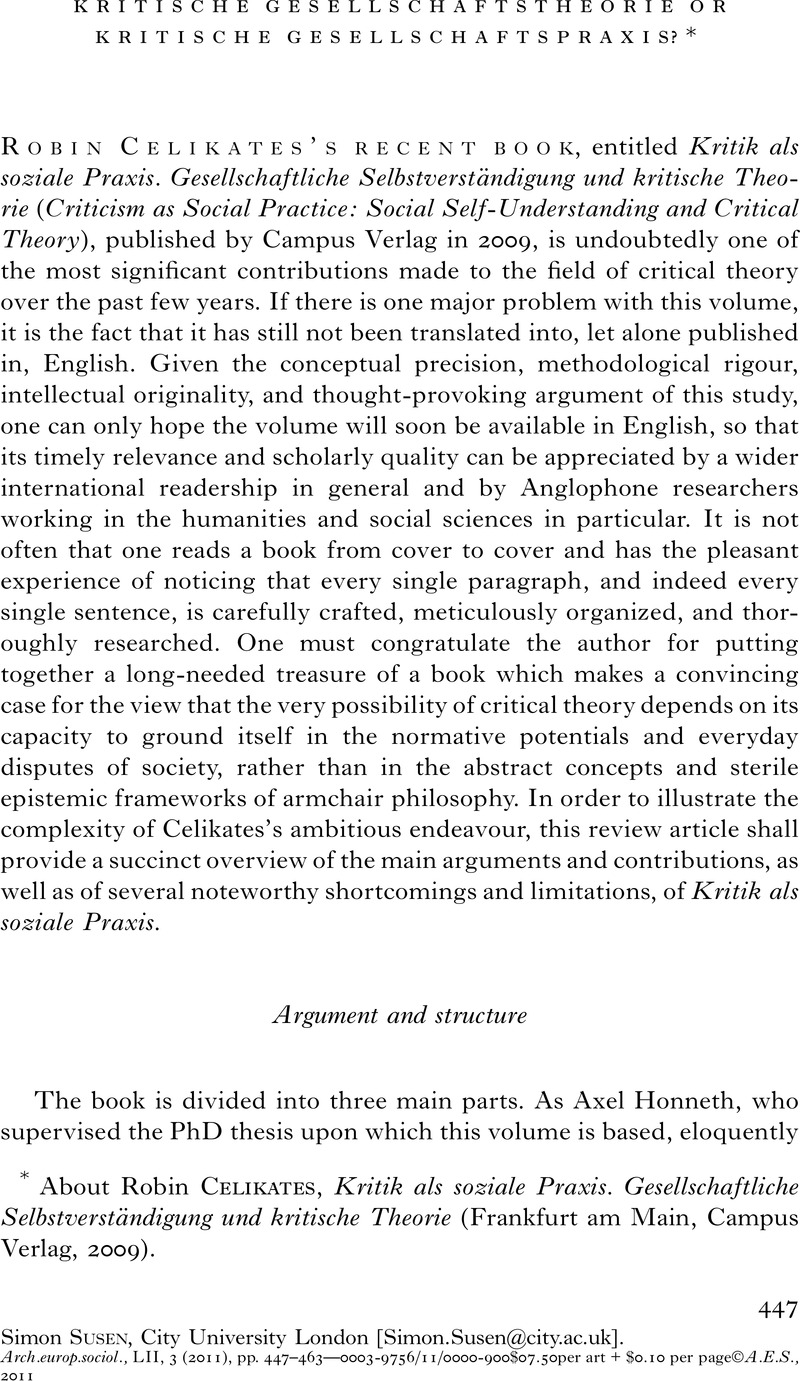Published online by Cambridge University Press: 10 February 2012

1 On Celikates’s critique of the orthodox Marxist definition of ideology as “necessarily false consciousness”, see pp. 220-221.
2 On Celikates’s detailed analysis of ethnomethodology, see esp. pp. 104-116.
3 For a detailed analysis of the relationship between “internal” and “external” critique, see esp. pp. 160-166.
4 Celikates acknowledges this when stating (on p. 79) that the methodological approach defended in The Weight of the World may be seen as indicative of an “interpretive turn” in Bourdieu’s œuvre. On this point, see Pierre Bourdieu, “Comprendre”, in Pierre Bourdieu (ed.) La misère du monde (Paris, Seuil, 1993), pp. 1389-1447.
5 On this issue, see, for example: Luc Boltanski, Juliette Rennes, and Simon Susen, “La fragilité de la réalité. Entretien avec Luc Boltanski. Propos recueillis par Juliette Rennes et Simon Susen”, Mouvements 64, 2010, pp. 149-164, esp. pp. 155-156. See also Luc Boltanski, “Critique sociale et sens moral. Pour une sociologie du jugement”, in Tetsuji Yamamoto (ed.) Philosophical Designs for a Socio-Cultural Transformation: Beyond Violence and the Modern Era (Tokyo; Boulder, co: ehess; Rowman & Littlefield, 1998), pp. 248-273.
6 See, for instance, pp. 28-33, 73-75, 136-140, 151-152, 156-156, 159-166, 187, and 249-252.
7 A few cursory comments on the weaknesses of Boltanski’s approach can be found, for instance, on pp. 153-157.
8 This shortcoming is also expressed in unsubstantiated claims such as the following: “Surely, one of the most controversial theses put forward by Bourdieu is the assumption that one’s own habitus cannot be converted into an object of reflection” (p. 68). Where does Bourdieu say so? Again, it is hardly surprising that no reference is provided given that, in fact, the opposite is true.
9 Jürgen Habermas, “Preface”, in his Knowledge and Human Interests, trans. Jeremy J. Shapiro (Cambridge, Polity Press, 1987 [1968]), pp. vii-viii, here p. vii (italics added).
10 Some Habermasian scholars may disagree with Celikates’s “transcendentalist” interpretation of Habermas’s universal and formal pragmatics (see esp. p. 192) and may object that it is based on a misrepresentation of Habermas’s arguments.
11 Again, there are numerous examples to illustrate this point, but if this book is to be translated into English (or into any other language), the long quotations on the following pages should be indented: pp. 77, 84, 113-114, 115, 137, 162, 167, 186, 189, 205-206, 208, 215, 221, 223, and 228.